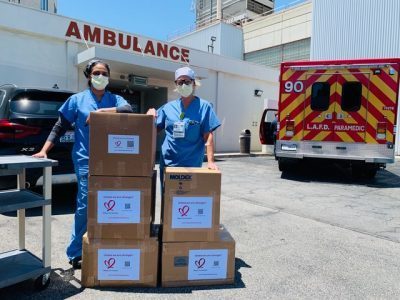How to Prepare Your Medical Facility For Crisis Events After Covid-19

At the peak of the Covid-19 pandemic in Italy, the Papa Giovanni XXIII hospital in Bergamo was stretched to its limits. Waiting rooms were converted into makeshift intensive care areas and doctors improvised snorkeling masks to be used as ventilators. It was a crisis of proportions that doctors had never seen before.
While Italy has arguably been the hardest hit by Coronavirus, the struggles of the country’s hospitals are not in isolation. There have been similar events in other parts of the world. Hospitals and healthcare workers have, for months now, been operating in crisis mode. Which brings to fore the question, how prepared is your medical facility for crisis events?
Here are some helpful contingency measures to consider.
Emergency Funds
Any time your medical facility is faced with an influx of patients, expenditures increase. There will be a need for more medication, staff will have to work more shifts and you may need more equipment. Further, consider that not all patients that come to your facility during such events will be in a position to pay their bills. Yet, legally and morally speaking, you can not deny them care.
As is, health facilities in most parts of the world are grossly underfunded. Whereas governments do sometimes offer financial assistance during catastrophes, there is often a lot of bureaucracy tied to such aid. In light of this, make an effort to set aside some emergency funds for eventualities. One way to achieve this would be to hold occasional fundraisers and encourage well-wishers in the community to donate to your kitty.
Staff Training
It is estimated that at least 40 nurses and 151 doctors died in Italy while caring for Coronavirus patients. This goes to show how dangerous crises can be for the medical staff at your hospital or clinic. Preparedness may be the only thing that saves them from death.
In the same way that professional development courses are offered to doctors, so should crisis-management training. Fire drills are not enough. Other grave events such as storms, mass shootings, viral infections, and similar traumas should also be addressed.
On the back of all this, psychosocial support is also of utmost importance. The business of caregiving can be brutal to the mind. In an hour a doctor could deliver a child for one patient then finds themselves calling out ‘time of death’ for the next. If they are not supported to process such events well, they could develop mental health issues.
Extra Medical Supplies
According to the World Health Organization, about 73 countries have reported ARV shortages during the Covid-19 pandemic. This comes on the heels of shortages of other medical supplies like face masks, PPEs, and ventilators. Sadly, amidst all this confusion, unscrupulous suppliers are flooding the market with substandard products that are putting lives at risk.
It is therefore evident that having a dedicated and reliable source of medical supplies is imperative. German hospitals, for example, have managed to navigate this pandemic with relative ease. Through their government, they have had a consistent supply of high-quality Hisomedical PPE products to protect healthcare workers. The same can be said for facilities in Belgium and France.
So, what are the qualities to look for in a medical supplier? Fair pricing is certainly essential as is consistency in supply. Additionally, aim for firms with enough capacity to supply in bulk during emergencies such as mass casualties and pandemics. The quality of their products should also always be above reproach.
An Offline System
In September of 2020, approximately 250 hospitals run by medical carrier UHS were crippled by a malware attack. Healthcare workers at the facilities were logged out of the systems and had no way of accessing any digital records. In a separate incident, during a city-wide power outage in Mumbai’s Mulund area, the Apex Hospital suffered a generator explosion. This incident left the facility with no power back-up leading to a major strain in operations.
Both these incidents are examples of how dependent modern health facilities are on modern technology and power supply. Nevertheless, when outages or malware hacks happen the consequences can be severe and even lead to the death of patients.
To mitigate against such events, develop a system of offline protocols for your facility. Ensure that your staff has an understanding of paper charts and forms of alternative record keeping. They should also develop improvisation skills for scenarios where electronic devices are rendered unusable.
An Alert System
Whenever a mass tragedy happens, it requires an all-hands-on-deck response. It is advisable to have a recall system for doctors and nurses for various events. Similarly, an alert system can equally be useful for warning staff at your facility of possible threats or emergency events.
The ‘code blue’ alert is possibly the most widely used across the world. It is a call out for a patient in critical condition. Some hospitals have, however, developed this color system further to include other incidences. Code pink for example signifies a lost child while code black represents a bomb threat. Consider either taking up the established codes for your facility or developing a unique one that suits your needs.
Conclusion
The solutions of modern medicine may have made us put down our guard but Covid-19 ought to stir us awake. The only way we can flatten the curve and avoid future disasters is to prepare for as many scenarios as we can anticipate. There is no time like the present to begin.
Photo by Alex Mecl on Unsplash(Free for Commercial Use)
Image Reference: https://unsplash.com/photos/oj6nOfh9Obo










Leave a Reply